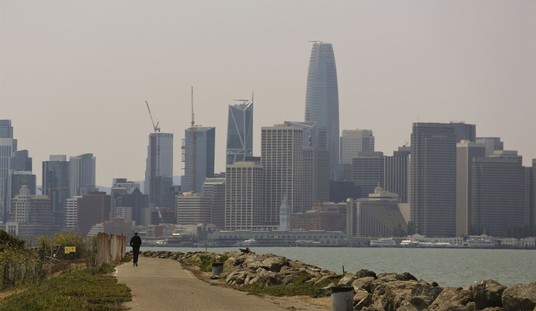Tony Blair appeared for the second time before an inquiry panel on the Iraq War in the UK with a specific and blunt message: Get over it. The former Prime Minister advised them to end “this wretched policy of apology” while expressing his natural regrets over the loss of life caused by the 2003 invasion and occupation for all sides. However, Blair says that forcing regime change in Iraq followed a longstanding series of interventions conducted by the UK and the West, and that even apart from the intelligence failures on WMD, Saddam Hussein needed to go — as he explained at the time of the invasion:
Hand-wringing over the Iraq war has extended much longer across the Atlantic for America’s biggest supporter in that war, England.
Last summer, then-Prime Minister Gordon Brown created an officialIraq Inquiry “to identify lessons that can be learned from the Iraq conflict,” and now Brown’s predecessor is saying his countrymen need to get over it.
In his second testimony before the Inquiry, tU.K. daily the Guardianreports that former Prime Minister Tony Blair, who made all the crucial decisions that led England to become the second-biggest contributor of troops to the George Bush-led invasion of Iraq, was at times contrite, saying he deeply regrets the casualties the war caused.
However, Blair also told the panel of lords that his country needs to end its “wretched policy of apology” for what goes on in the Middle East, the Guardian reports.
CBS quotes Blair at the time of the invasion as explaining the action in Iraq as part of a national policy of intervention, as well as a natural decision for a Labour government:
A political philosophy that does care about other nations – eg Kosovo, Afghanistan, Sierra Leone, and is proud to change regimes on the merits, should be gung-ho on Saddam. So why isn’t it? Because people believe we are only doing it to support the US, and they are only doing it to settle an old score.
The Guardian has much more on Blair’s testimony, especially his pushback that he conducted secretive diplomacy to send his country into war. Blair also reminded them that the question of containment changed significantly after the 9/11 attacks:
He repeated the evidence he gave to the inquiry when he appeared before it in open session exactly a year ago, when he said the international situation changed fundamentally after the al-Qaida attacks on the US on 11 September 2001.
He told the inquiry he had offered Bush Britain’s support in tackling the terrorist threat. He supported the containment of the Iraq regime and then the presentation of an ultimatum to Saddam.
Blair said cabinet ministers had been kept fully informed and had taken part in full discussions about British plans.
“The cabinet discussions were immensely detailed,” he said. “The notion that people were not discussing it [is wrong]. People were talking about this the whole time. This was a perpetual conversation going on in depth. All of this was being discussed pretty broadly and pretty deeply.”
Be sure to spend a few minutes watching the video in the Guardian’s report. Blair responds with barely-concealed disdain to the notion that he hid his policy decisions from his cabinet, almost laughing aloud at one point.
The point about 9/11 is especially germane. Saddam had fought compliance of UN resolutions — eventually seventeen of them — for his own reasons, but the noncompliance was obvious and defiant. His security forces locked weapons radars on US and UK patrols over the no-fly zones, in gross violation of the 1991 cease-fire. Before 9/11, rogue regimes violating cease-fires were thought to be sufficiently addressed through containment, but 9/11 demonstrated that nations needed to address significant dangers before they had a chance to attack through symmetrical or asymmetrical warfare. And regardless of the accuracy of the West’s intel on WMD, Saddam was known to back terrorist groups, especially in the Palestinian territories.
In the end, Iraq has transformed from a bloody, Stalinist dictatorship that conducted genocides on its own people to a nascent democracy, albeit with some difficulty. While it has drifted too close to Iran’s orbit for anyone’s comfort, it still remains an independent and self-governing state with growing strength and economic power that benefits its people instead of the dictator and his Tikriti cronies. It will take years longer to fully secure the country, and will need the assistance and friendship of the West to keep from falling into a failed state, but for the first time in decades Iraqis can control their own destiny. Blair’s right in telling his countrymen that the self-flagellation over Iraq has become as unseemly as it is pointless.








Join the conversation as a VIP Member